INRAE committed to open science
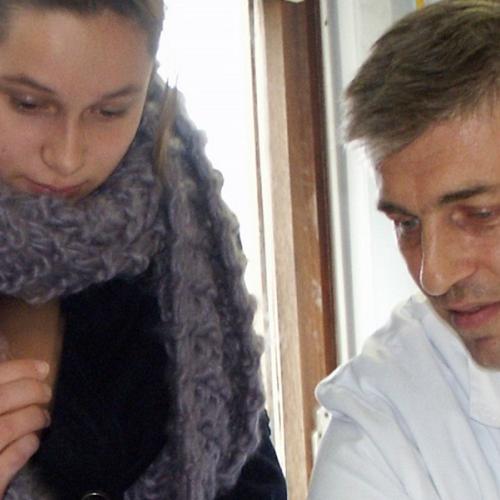
Launch of the Second National Plan for Open Science
On 6 July 2021 at INRAE headquarters in Paris, France’s Minister of Higher Education, Research and Innovation, Frédérique Vidal, presented the country’s Second National Plan for Open Science, which will run through to 2024. The Plan seeks to make open science practices more widespread in France, and is part of a wider European Union goal of promoting open science. The Plan will also triple open science funding, bringing it to €15 million per year. Frédérique Vidal’s speech was preceded by those of Philippe Mauguin, Chair and CEO of INRAE, Antoine Petit, Chair and CEO of CNRS, Yassine Lakhnech, President of Grenoble Alpes University, and Sylvie Retailleau, President of Paris-Saclay University.
> Second National Plan for Open Science

See the press release
Building on the expertise acquired with the development of data.inrae.fr, Frédérique Vidal, Minister of Higher Education, Research and Innovation, has entrusted INRAE with the management of the national research data platform project: Research Data Gouv. Esther Dzalé, a research engineer at INRAE's Directorate for Open Science (DipSO), will lead this project in close collaboration with the partners.
Open Science is broad-based with diverse types of action
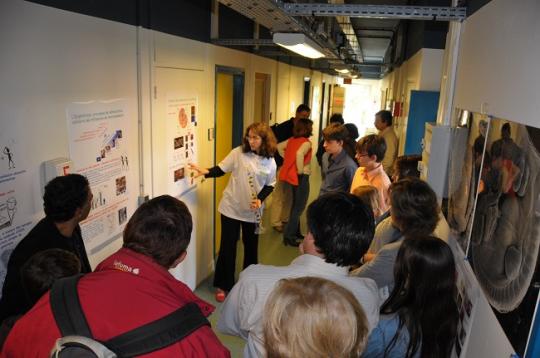
INRAE is developing a holistic approach to open science that includes disseminating knowledge and scientific findings to different audiences (experts/non-experts), building trustworthy relationships with stakeholders — not‑for-profit associations in particular — and involving stakeholders throughout the research process. INRAE’s work for open science includes expertise and support for policymaking, participatory science and research, open innovation measures (living labs, Innovation Regions programme) and the dissemination of research findings, both in terms of publications and research data, using digital resources.
Read more: INRAE committed to opening science to all
Expertise and support for policymaking
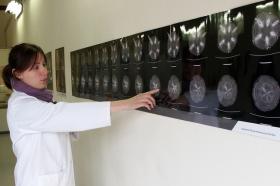
INRAE, along with a number of other public research institutes in France, signed a charter on institutional openness towards society. Signatories to the charter share best practices and lessons learnt, and harmonise their work in the aim of increasing the quality of their contributions to public policymaking and to society in general.
Read more: ANSES, BRGM, IFREMER, INERIS, INRAE, IRSN, Gustave Eiffel University and the French public health agency sign a charter on openness towards society [in French]
Page on expertise and support for public policies at INRAE
Participatory science and research
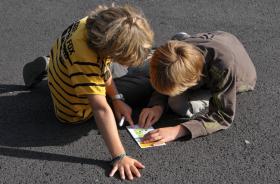
INRAE has carried out more than 100 projects involving citizen scientists. The degree of participation varies greatly — from simply collecting data to actively contributing to research. The outcome is two-fold: science that better addresses societal concerns and a society that better understands scientific approaches, limitations and rigour.
Read more: Participatory science and research at INRAE
INRAE site for participatory science and research [in French]
Research infrastructures: open-access support networks
INRAE's research infrastructures (IR) supply scientific communities with data production and processing services, along with support for training, innovation and the development of technology. They support the Institute's main thematic areas of activity: the environment, forestry and land management, agriculture, food and human health and the bioeconomy.
A move to share research findings
Sharing research findings, in terms of publications and data, is an obligation, both legal and moral. It also promotes the advancement of science because it allows others to benefit from the findings without delay and use the findings to inform their own research. Sharing research findings can also create value in citizen initiatives and for innovative companies that can use existing research to develop applications for the benefit of society.
Sharing scientific publications
Sharing publishing costs in a different way
While a researcher’s scientific contribution can take many forms, including providing expertise, teaching or pursuing innovation, publishing is at the heart of a researcher’s work. Sharing publications allows researchers to formulate new hypotheses and, in that, advance science. Outside of the world of research, sharing publications allows citizens and users to review and discuss research findings. This move to share publications is spurred by generosity and an effort to be transparent towards civil society. It also is a useful way for research institutes to leverage their work and increase their prominence on the international stage.
Free and open access to scientific publications on the Internet is being strongly encouraged by a number of governments and funding agencies. This is upending the economics of traditional publishing, where a reader pays to read articles by subscribing to journals. INRAE supports a number of open-access models that allow publishing costs to be shared by publishers, authors and readers in a various ways.
An open archive for INRAE’s scientific publications

HAL INRAE is a part of HAL, France’s multi-disciplinary open access archive. INRAE encourages all its staff to deposit their publications, including studies, reports, journal articles, teaching materials and patents over the course of their work, and to provide updates as necessary. This way, the wealth of knowledge and expertise at INRAE can be open and accessible to the widest possible audience.
INRAE’s scientific and technical journals
In 2020, INRAE published or co-published nine academic research journals, eight of which are internationally recognised or are the leading publication in their field. INRAE also publishes four technical journals to disseminate the work of INRAE laboratories to other professionals and public- and private-sector stakeholders. By 2024, all articles in these journals will be open access.
INRAE’s scientific and technical journals
INRAE a partner in Éditions Quæ for knowledge dissemination

Since 1 July 2006, CIRAD, IFREMER and INRAE have pooled their publishing activities into Éditions Quæ, a joint publishing house where they can share their human and material resources. With a catalogue of more than 1,500 publications as of 2020, Éditions Quæ is highly regarded in a number of fields, including nature and the environment, agriculture, forestry, livestock, fisheries, aquatic and aquaculture resources, food and human nutrition. More than 100 titles are available for free as PDFs or digital publications on its dedicated web portal for open-access work: Quæ Open. Read more about Quæ.
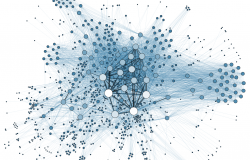
Four INRAE researchers and engineers created an innovative system for submitting and peer‑reviewing scientific papers that is free for both authors and readers and completely transparent. The initiative received the 2020 European LIBER Award for Library Innovation.
Data sharing
“It will be possible to imagine researchers collecting data in the same way they carry out their bibliographic research today” Odile Hologne
Researchers at INRAE are constantly producing a wide and diverse range of data: figures, numbers, protocols, geographic and genomic data, databases, software programs, etc. INRAE manages this data and makes sure it is findable, accessible, interoperable and reusable — the FAIR data principles.
Data INRAE: a web portal to deposit and access data
> Datapartage is a web portal accessible to all researchers, including researchers from other public research institutes. The portal has information about INRAE policy on data sharing and thematic updates on the subject. Importantly, it also provides a toolbox of useful resources about depositing data in public archives, determining their status and assigning a unique identifier to the data. Datapartage is used to access the Data INRAE site where INRAE researchers can deposit their research data. [in French]
> Data INRAE is a data repository and directory for data produced at INRAE.
A data governance group and a chief data officer
INRAE is one of the first research institutes in France to appoint a Chief Data Officer. Hadi Quesneville has been in the role since Spring 2020.
At the same time, a data governance group was created. The group draws on the body of reference documents available to the community of INRAE researchers, including one specifically on data governance. The group develops guidance on the principles of managing and sharing scientific data.

Hadi Quesneville is one of the first chief data officers to be appointed by a research institute in France. He speaks about his new role in this burgeoning field and discusses the issues facing open science today.
A directorate for open science

INRAE is the first research institute in France to create a directorate for open science. Known by its acronym DipSO, the directorate aims to address open science issues in the light of digital change and increasing societal expectations.
DipSO’s website provides information on its mission and the range of services available to help INRAE and its corps of scientists and professionals in their efforts for open and participative science.
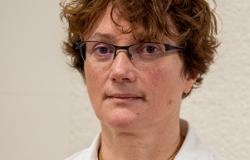
Since the start of her career, Odile Hologne, director of INRAE’s Directorate for Open Science (DipSO), has always been motivated by her desire to disseminate knowledge within and outside of the scientific community. For Odile, the best way to do this is with new information technologies and a healthy dose of enthusiasm.
